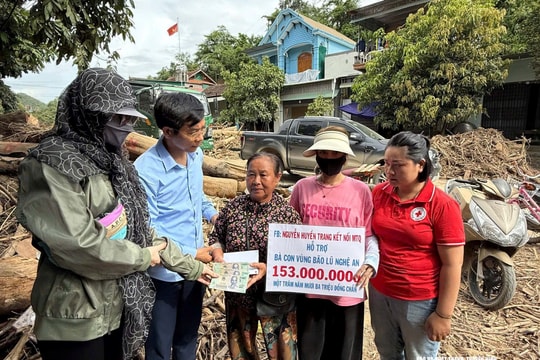Van Du Commune - Where the strength of solidarity writes the journey of innovation
Through many stages of development, the land rich in tradition Van Du has fostered a spirit of solidarity and the will to overcome difficulties, forming a solid internal strength. From that foundation, the locality has constantly innovated to achieve important achievements and steadily move towards the goal of achieving advanced new rural standards by 2030.
Historical mark
Van Du commune today has a new look when it was established on the basis of merging 3 communes Thinh Thanh, Tay Thanh and Minh Thanh. With an area of 84.3 km², 25,549 people, the locality has a favorable location, easily connecting to the centers of neighboring districts via National Highway 7C and Provincial Road 538.
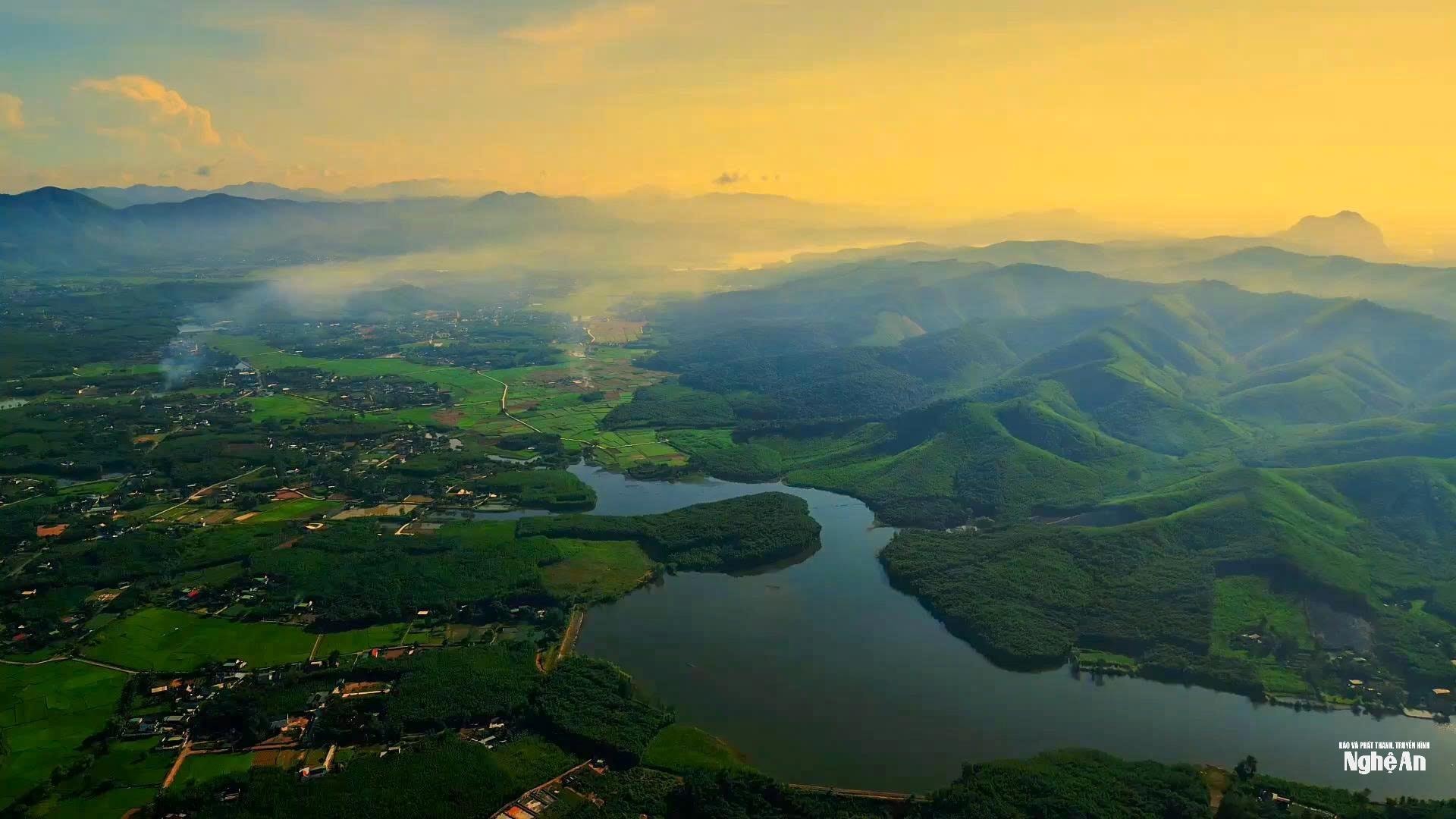
Van Du carries within itself a steadfast revolutionary tradition that has been nurtured through many generations and has become the pride of the people here. During the resistance wars against the French and the Americans, the people of Van Du made great contributions in terms of both human and material resources. Many children of this land put down their pens and followed the call of the country and went to war. Van Du was not only a solid rear base but also a fiery front line, a place that used to be a military base, a place to hide cadres and supply food for the revolution. After the resistance wars, Van Du had 750 martyrs and wounded soldiers, and 16 heroic Vietnamese mothers.
That tradition is also engraved through historical and cultural relics in the area. Notable among them is To Ba Ngoc church in hamlet 6. This is a place of worship and commemoration of him and the two leaders of the Can Vuong movement, Nguyen Xuan On and Phan Dinh Phung. The relic is associated with many important events in the history of the resistance against the French in the late 19th century.
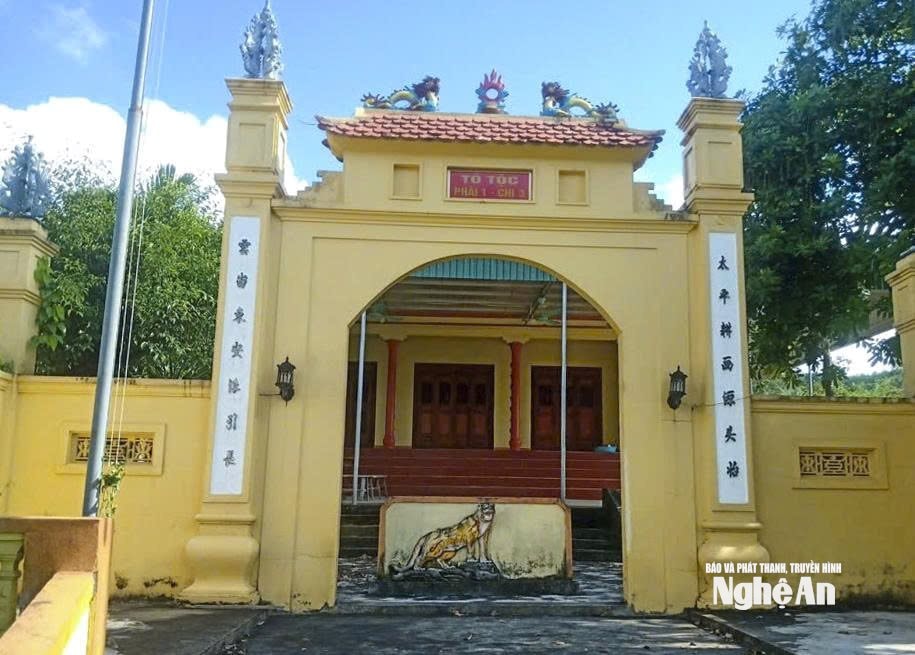
To Ba Ngoc (real name To Sy Trac, born in 1838) was from Dong Yen village, Van Tu commune, now Van Du commune. He was famous for being a benevolent and compassionate person, willing to help the needy. When the Can Vuong movement broke out, responding to Nguyen Xuan On's call, he not only contributed money and food but also mobilized many other people to support, and was considered the "Commander of military food transportation" of the insurgent army.
In February of the year Dinh Hoi (1887), Phan Dinh Phung, on his way to the North to join the anti-French movements, stopped at his house. The banner that Phan Dinh Phung dedicated to Mr. To Ba Ngoc is still preserved in the To family temple, along with many antiques such as stone incense pillars, incense tables, thrones, tablets, incense burners and some Chinese documents.
On June 13, 2013, Nghe An Provincial People's Committee issued Decision No. 2452/QD-UBND, ranking To Ba Ngoc Church as a provincial historical and cultural relic. This is not only a recognition of the merits and contributions of martyr To Ba Ngoc and his descendants to the homeland and country, but also a source of pride for Van Tu people in the current life.
-fb32a715381d7d16fd81b2285817a717.jpg)
Van Du currently has many valuable historical and cultural relics. In addition to To Ba Ngoc Church, there is also Dau Trong family church (village 12) which is ranked at the provincial level. In particular, the banyan tree in Lang market has been recognized as a heritage tree. In addition, the commune also has 8 relics that have been inventoried, of which Dong Xoi temple is being restored.
Along with the system of tangible relics, Van Du also preserves many intangible cultural values such as sacrificial drums, full moon worship, family worship, ancestor worship... All of these have created a rich spiritual life, reflecting the depth of history and identity of this land.
.jpg)
Besides the revolutionary tradition, Van Du is also a land rich in cultural and religious identity. The whole commune currently has 2 parishes (Dong Ken and Hau Thanh) and 5 sub-parishes: Trung Thanh, Hau Thanh, Nguyet Lang, Yen Thinh and Hau Trach, with 866 households, 4,306 people, accounting for about 17.2% of the commune's population. The solidarity and unity between religions and non-religious people has long been a unique cultural feature, contributing to building a strong and lasting great solidarity bloc in the community.
Steady development from the strength of solidarity
Over the past 5 years, Van Du commune has faced many difficulties, but under the close leadership of the Commune Party Committee, the consensus of the political system and people, the locality has overcome challenges and achieved comprehensive results.
.jpg)
.jpg)
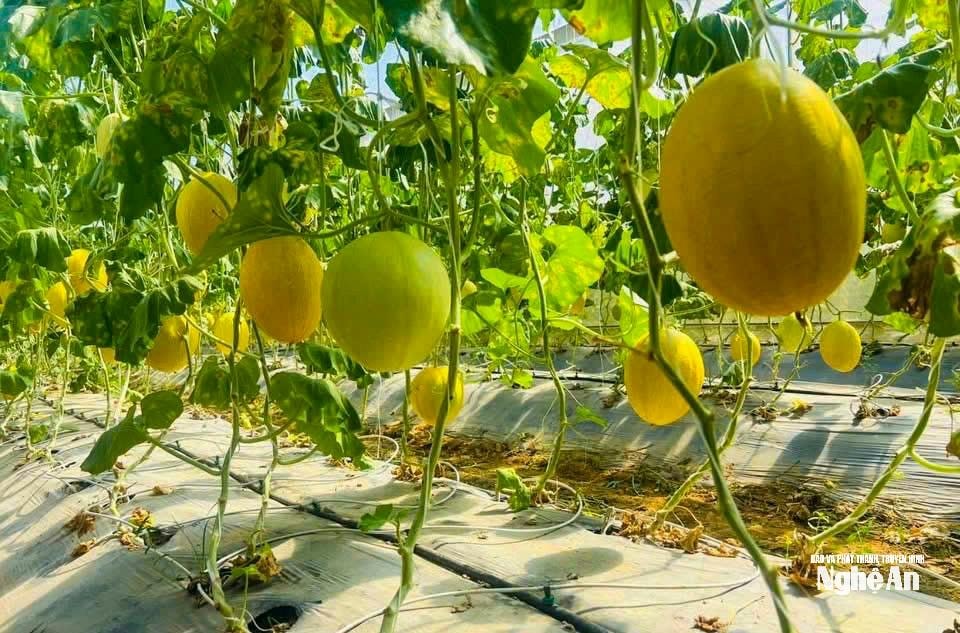
Van Du's socio-economic picture has grown impressively with an average growth rate of 9.60% for the 2020 - 2025 term.
Shifting the structure in the right direction, gradually reducing the proportion of agriculture, forestry and fishery, increasing the proportion of industry - construction and services. Specifically, the proportion of agriculture, forestry and fishery from 57.26% in 2020 to 49.68% in 2025; Industry and construction from 18.10% in 2020 to 22.08% in 2025 (up 3.98%); Services from 24.64% in 2020 to 28.23% in 2025 (up 3.59%).
Van Du agriculture has recorded many advances with effective farming models, bringing high incomes to hundreds of households. Livestock farming remains stable with large herds of cattle and poultry, while aquatic products exploited from water surfaces yield significant output. Forestry also plays an important role, with a forest cover rate of nearly 47%, of which most of the area is FSC certified, contributing to environmental protection and increasing the value of agricultural products.
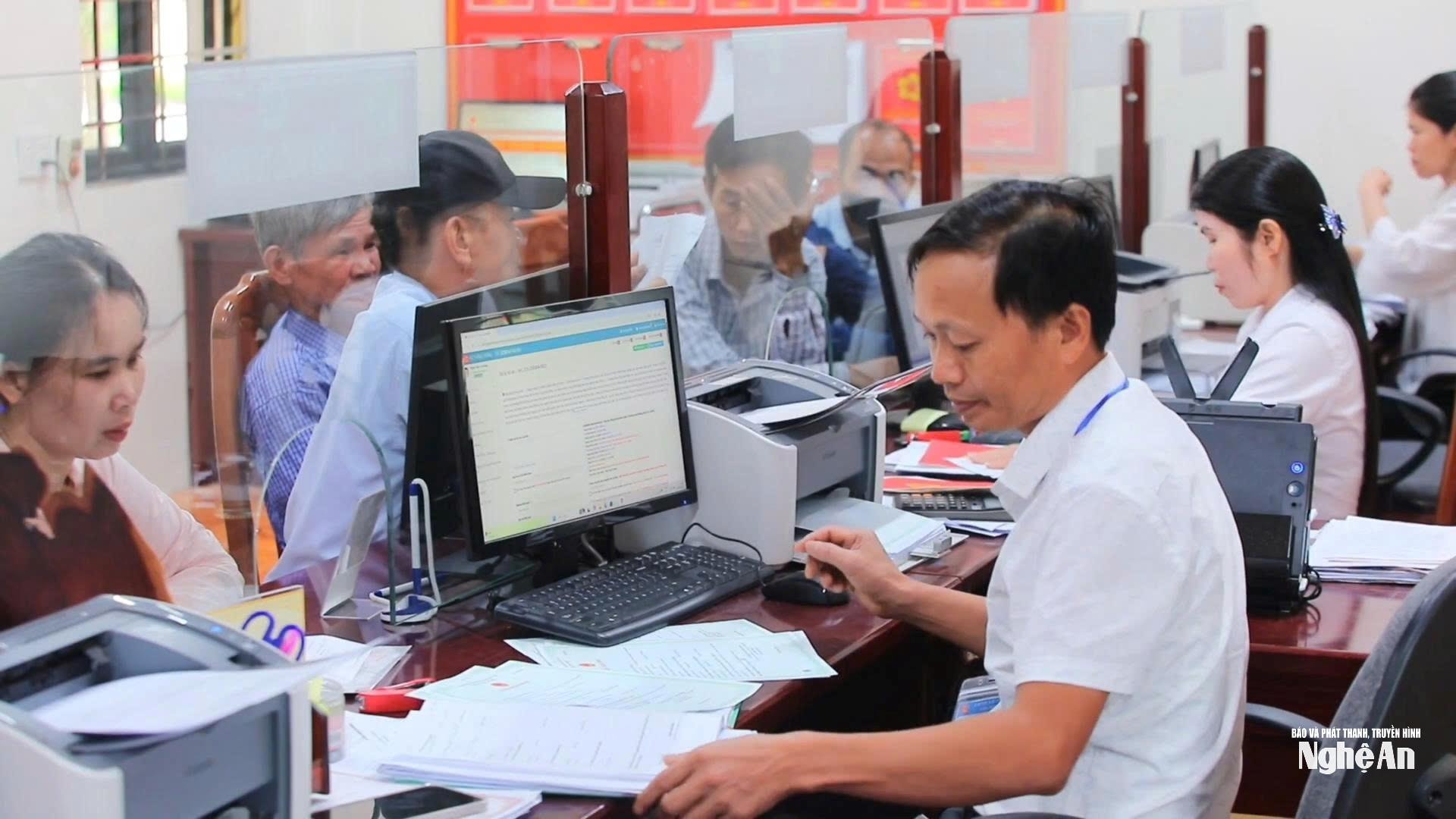
Industry and construction made a breakthrough with a production value of 549,944 million VND, an increase of 2.34 times compared to 2020. More than 1,000 workers participated in small-scale industries such as mechanics and wood processing, with an average income of 65-70 million VND/person/year. Nearly 500 billion VND was invested in infrastructure for transportation, schools, martyrs' temples, and 98.3 km of concrete roads from the people. Commercial services were bustling through Ong, Lang, and Thinh markets, with a value of 264,943 million VND, an increase of 1.48 times.
Administrative reform in Van Du has been implemented synchronously and effectively, with more than 99% of records received and processed online. This result not only shortens time and reduces administrative procedures but also improves management effectiveness and efficiency, contributing to creating a favorable and transparent environment for people and businesses in the current period.
.jpg)
.jpg)
Van Du's culture and society have recorded many remarkable progresses. Education has developed steadily with 11 schools and nearly 4,800 students, ensuring 100% universal primary and preschool education. Community life has also improved, with more than 86% of families achieving cultural titles. Health care coverage is wide, with insurance coverage reaching nearly 95%, helping to reduce child malnutrition to 10%.
The local poverty rate has dropped to 1.6%, and many disadvantaged families have received support to build or repair their houses. Workers have been trained, and more than 1,600 people have been sent abroad to work, contributing to increasing the income of families.
.jpg)
These achievements are vivid evidence of the strength of solidarity and unanimity of the Party Committee, government and people of Van Du. This is also a solid foundation for the locality to continue to make breakthroughs and successfully implement the goals set in the new term.
New goals, new vision
Entering the new term, the Party Committee of Van Du commune has set strategic goals for the 2025-2030 term, focusing on promoting internal resources and taking advantage of external resources for sustainable socio-economic development. Based on the achievements of the previous term, Van Du aims to build a clean Party Committee, a streamlined political system, taking people and businesses as the center, aiming to achieve advanced new rural standards by 2030.
In addition, the locality focuses on shifting the economic structure towards sustainability. Creating a breakthrough in comprehensive agricultural development, bringing in high-quality rice cultivation, applying scientific and technological advances, and applying high technology to rice and flower crops.
The focus is on achieving an average growth rate of total product value of 10-11%. The economic structure is clearly oriented to shift: agriculture, forestry and fishery will decrease to 38-40%, industry and construction will increase to 30-32%, and services will reach 30-31%. The average income per capita is expected to reach 95-100 million VND/year.
The commune also aims to develop 2-3 products that meet OCOP standards of 3 stars or higher and establish 1-2 new cooperatives. State budget revenue is expected to reach 130-135 billion VND, the rate of hardened commune-level roads is 98-100%.
.jpg)
.jpg)
In terms of culture and society, Van Du aims to control the population growth rate below 0.9-1.0%, the health insurance participation rate reaches 96-97%, voluntary social insurance 35-36%. Education strives for 100% of schools to meet national standards level 1, at least 2 schools to meet level 2. Social infrastructure is improved, with 85-90% of commune-level roads having electricity, 90-95% of households having standard housing and 100% of the rural population using clean water, of which 90-95% meet clean water standards.
The environment is a major priority, with the rate of solid waste collected and treated reaching 92-95%. National defense and security are strengthened, ensuring safe and secure bases, combat readiness and maintaining political and social stability every year. Party building work aims for over 95% of grassroots party organizations to complete their tasks well, with no unit failing to complete them, and admitting new party members reaching over 3% per year.
.jpg)
To realize the goals, Van Du focuses on three breakthroughs: Administrative reform associated with digital transformation, building a team of dedicated and professional staff. At the same time, perfecting inter-regional transport infrastructure, attracting investment in key projects. In addition, shifting the economic structure, prioritizing high-tech agriculture, developing the supply chain - product consumption, promoting official labor export.
With the spirit of solidarity and aspiration to rise, Van Du is gradually realizing the goal of becoming a model new rural commune, contributing to the development of the homeland.
List of members of the Executive Committee of the Van Du Commune Party Committee for the 2025-2030 term:
1. Thai Minh Sy - Party Secretary, Chairman of the People's Council of the commune.
2. Thai Van Quang - Standing Deputy Secretary of the Party Committee.
3. Hoang Van Tuan - Deputy Secretary of the Party Committee, Chairman of the Commune People's Committee.
4. Tran Dinh Nga - Member of the Standing Committee, Head of the Party Building Committee.
5. Nguyen Manh Tuan - Member of the Standing Committee, Chairman of the Party Committee's Inspection Committee.
6. Nguyen Cong Trieu - Member of the Standing Committee of the Party Committee, Vice Chairman of the People's Council of the commune.
7. Nguyen Van Vu - Member of the Party Committee Standing Committee, Chairman of the Commune Fatherland Front Committee.
8. Ma Xuan Uyen - Member of the Standing Committee of the Party Committee, Vice Chairman of the Commune People's Committee.
9. Dao Van Ngu - Member of the Standing Committee of the Party Committee, Vice Chairman of the Commune People's Committee.
10. Tran Dinh Que - Member of the Party Committee Standing Committee, Head of Commune Police.
11. Dong Van Vuong - Member of the Party Committee Standing Committee, Commander of the Commune Military Command.
12. Nguyen Thi Hoi - Member of the Executive Committee, Chief of Office of the Commune Party Committee.
13. Pham Thanh Long - Member of the Executive Committee, Deputy Head of the Party Committee's Inspection Committee.
14. Phan Thi Loan - Member of the Party Executive Committee, Vice Chairman of the Commune Fatherland Front Committee, Chairman of the Commune Women's Union.
15. Nguyen Dinh Ban - Member of the Party Executive Committee, Vice Chairman of the Commune Fatherland Front Committee, Chairman of the Commune Farmers' Association.
16. Nguyen Thi Tuyet - Member of the Party Executive Committee, Vice Chairman of the Commune Fatherland Front Committee, Secretary of the Commune Youth Union.
17. Dang Huu Hanh - Member of the Party Executive Committee, Deputy Head of the Economic - Budget Committee of the People's Council of the commune.
18. Thai Van Hai - Member of the Party Executive Committee, Deputy Head of the Culture and Social Committee of the People's Council of the commune.
19. Nguyen Van Luc - Member of the Party Executive Committee, Chief of Office of the People's Council - People's Committee of the commune.
20. Dau Trong Giap - Member of the Party Executive Committee, Head of Economic Department of the People's Committee of the commune.
21. Pham Thi Nhu Quynh - Member of the Party Executive Committee, Deputy Director of the Public Administration Service Center.
22. Phan Van Phung - Member of the Party Executive Committee, Principal of Thinh Thanh Secondary School.
23. Pham Van Thanh - Member of the Party Executive Committee, Principal of Thinh Thanh Primary School.
24. Pham Xuan Binh - Member of the Party Executive Committee, Principal of Tay Thanh Primary School.

.jpg)
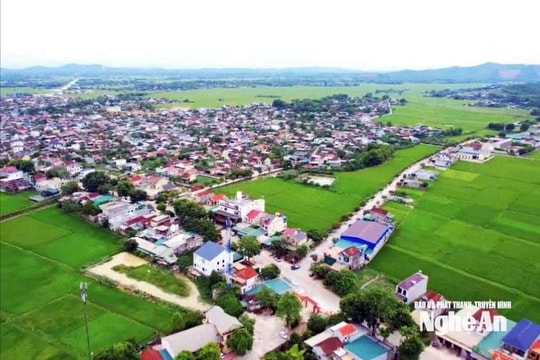
.jpg)
